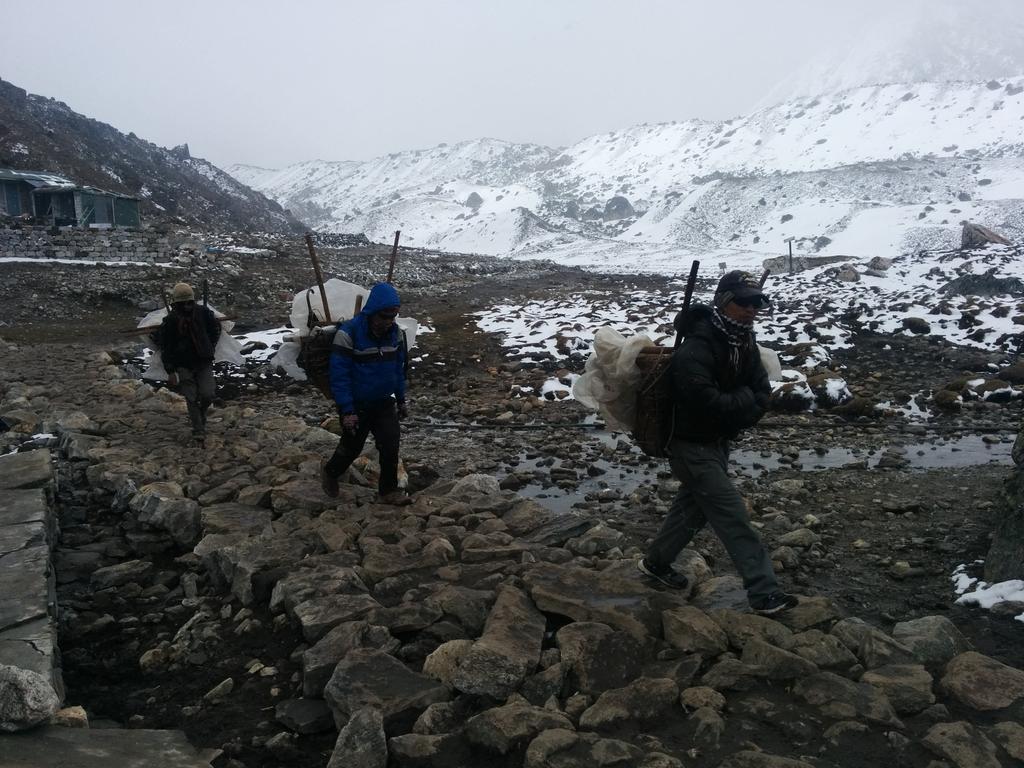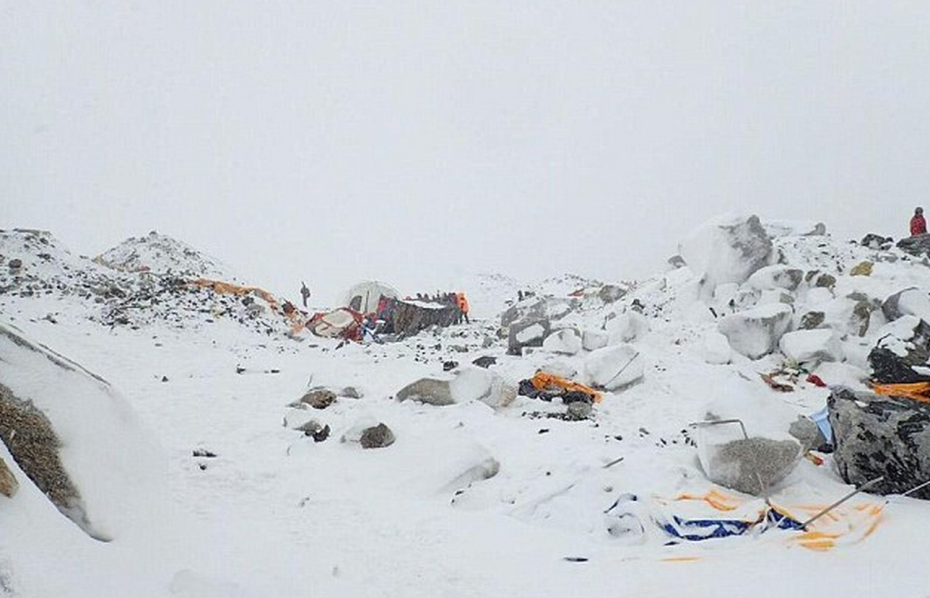Published: April 25,2015
The search for survivors, and attending to the injured, is on at Mount Everest after a powerful 7.8-magnitude earthquake in Nepal triggered an avalanche that hit the base camp Saturday.
At least 10 climbers and guides were killed, but more were injured and missing, and officials weren’t sure how many people were stranded on routes now cut off by snow.
Numerous climbers may now be cut off on routes leading to the top of the world's highest peak.
The avalanche began on Mount Kumori, a 7,000-meter (22,966-foot) -high mountain just a few miles from Everest, gathering strength as it headed toward the base camp while climbing expeditions have been preparing to make their summit attempts in the coming weeks, said Ang Tshering of the Nepal Mountaineering Association.
The avalanche — or perhaps a series of avalanches hidden in a massive white cloud — plowed into a part of base camp, a sprawling seasonal village of climbers, guides and porters, flattening at least 30 tents, Tshering said. With communication very limited at Everest, it was not immediately clear how many of those injured and killed were at base camp, and how many were elsewhere on the mountain.
Several — but not all — American-based groups were reporting in that they were OK. Seattle-based Madison Mountaineering said that while it had contact with its group of about a dozen climbers in a camp high above the base camp, it had not heard from staff who stayed behind in the base camp where the avalanche struck.
(MORE: Earthquake Devastation In Nepal)
Gordon Janow, the director of programs for the Washington-based guiding outfit Alpine Ascents International, said from Seattle that his team had come through the avalanche unscathed. Their first goal was to deal with the devastation at base camp, he said, and they would then try to create new routes to help climbers stuck above the treacherous Khumbu Icefall. The icefall, which is just above base camp, is a key route up the lower part of Everest.
"Everybody's pretty much in rescue mode, but this is different from some independent climbing accident where people can be rescued and taken somewhere else," Janow said. "I don't know where somewhere else is."
Azim Afif, the 27-year-old leader of a climbing team from University of Technology Malaysia, said in an interview on the service WhatsApp that his group was in a meal tent waiting for lunch when suddenly the table and everything around them began shaking.
When they ran outside, they saw "a wall of ice coming towards us," and heard the cries of Sherpa guides shouting for people to run for their lives, he wrote. "We just think to find a place to hide and save our life."
The small team planned to sleep together Saturday night in one large tent "to make sure if anything happen, we are together," Afif said.
Quickly, though, climbing teams scattered across base camp began to work together to search for survivors.
While helicopters would normally be used to pluck stranded climbers, it was unclear whether any would be available for Everest, given the devastation in and around Kathmandu. By late Saturday night, authorities said more than 1,100 people had been confirmed dead.
An official with Nepal's mountaineering department, Gyanendra Shrestha, said the bodies of 10 people had been recovered and an unknown number remained missing or injured. Their nationalities were unclear as climbers described chaotic attempts to treat the injured amid fears of more landslides and aftershocks that continue to rattle the region. Chinese media reported that a Chinese climber and two Sherpa guides were among the dead. The Associated Press reported that Google has confirmed that Dan Fredinburg, a Google executive, was among the dead in Nepal. Fredinburg was therewith three other Google employees climbing Mount Everest. The other three are safe, according to Google.
Returning sherpas, "it's bad", won't say anything else, kept walking down.
Reports in China said an amateur team encountered an avalanche on the north slope of the mountain at an elevation of more than 7,000 meters (22,965 feet) and safely retreated to a lower camp.
Everest avalanche kills at least eight climbers following Nepal earthquake http://metro.co.uk/2015/04/25/nepal-earthquake-everest-avalanche-kills-at-least-eight-climbers-5166947/ …
The magnitude-7.8 quake struck at around noon Saturday about 80 kilometers (50 miles) northwest of Nepal's capital, Kathmandu, just over a year after the deadliest avalanche on record hit Everest, killing 16 Sherpa guides on April 18, 2014.
The 2014 deaths occurred at the Icefall, where the edge of the slow-moving glacier is known to crack, cave and send huge chunks of ice tumbling without warning.
More than 4,000 climbers have scaled the 8,850-meter (29,035-foot) summit since 1953, when it was first conquered by New Zealand climber Edmund Hillary and Sherpa Tenzing Norgay. The numbers have skyrocketed in recent years, with more than 800 climbers during the 2013 spring season.
Following the 2014 disaster, guides accused Nepal's government of not doing enough for them despite making millions in permit fees from Western mountaineers who attempt to scale the Himalayan peaks. The guides protested by refusing to work on the mountain, leading to the cancellation of last year's climbing season.
MORE: Earthquake Devastation




No comments:
Post a Comment